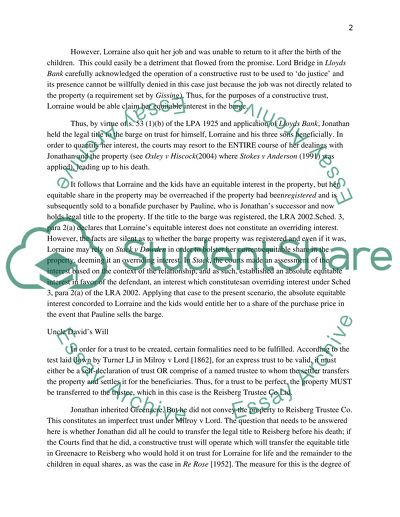Cite this document
(“Law of Equity and Trusts Essay Example | Topics and Well Written Essays - 1000 words”, n.d.)
Retrieved from https://studentshare.org/environmental-studies/1421325-law-of-equity-and-trusts
Retrieved from https://studentshare.org/environmental-studies/1421325-law-of-equity-and-trusts
(Law of Equity and Trusts Essay Example | Topics and Well Written Essays - 1000 Words)
https://studentshare.org/environmental-studies/1421325-law-of-equity-and-trusts.
https://studentshare.org/environmental-studies/1421325-law-of-equity-and-trusts.
“Law of Equity and Trusts Essay Example | Topics and Well Written Essays - 1000 Words”, n.d. https://studentshare.org/environmental-studies/1421325-law-of-equity-and-trusts.


